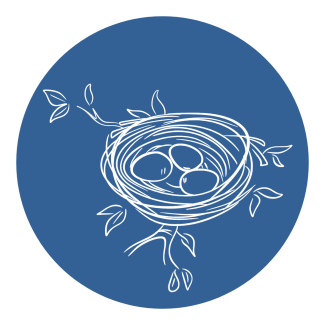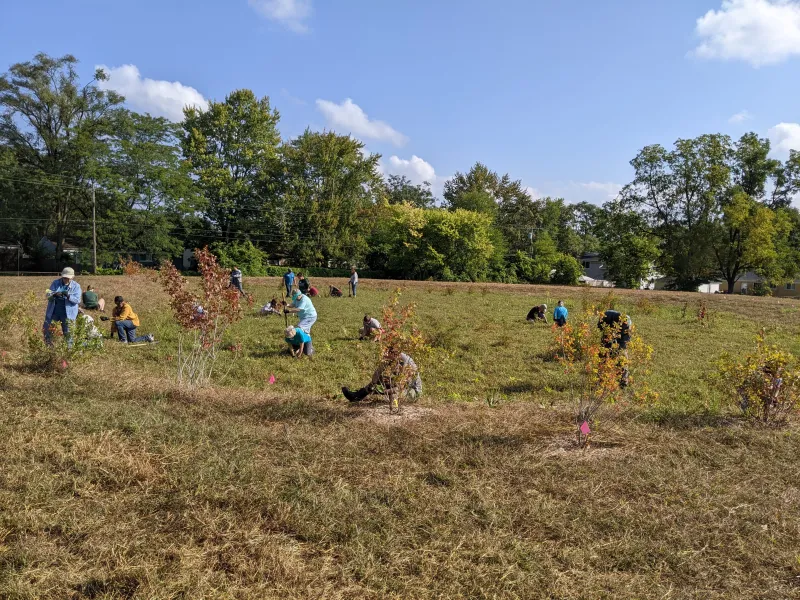
Applicant Information & Materials
School & Community Habitat Grant

Application Instructions
Applications must be submitted by the deadline, with subject line, “20XX* School and Community Habitat Grant Application” to: WCCD Community Forester: schg@washtenawcd.org (*XX = enter actual digits for correct year)
Read the Grant Overview (.PDF)
Download the Application (.DOCX)
Applications are accepted in the form of Word documents (.doc, .docx), PDF (.pdf), or a word document compatible format (Google Docs).
Please reach out if you need support to access, or edit, the application; and submit in the above formats.
If necessary, printed hand-written applications, may be submitted by request.
Grant Award
The WCCD staff and/or our partnering contractors may provide any combination of the following:
- Site visit for assessment & consultation
- Site design plan & maintenance plan
- Site materials, such as native plants, trees, and/or shrubs and planting aids (tree shelters, etc.)
- Site installation assistance, including use of the WCCD's tool and equipment lending library and assistance with volunteer outreach
- Grant fund availability is dependent on mileage funding as well as donations made to the WCCD for this purpose.
Grant Timeline
- October to following September: Donations accepted online and at WCCD resource distributions.
- January : Grant application period opens.
- Second Monday in June: Grant application period closes.
- July/August: Grant recipients selected & notified.
- September to following October: Recipients schedule site assessments/design visits as necessary and/or submit plant requests.
- November to December: Contractors provide quotes to WCCD and projects are adjusted to fit within the budget.
- January (1 year after application period opens): Recipients are notified of final award amount and any project adjustments.
- Spring to Fall (following final notifications): Recipients receive requested awards, such as site prep, plant material, and installation support.
Eligibility
- Applicants must represent or be affiliated with a local school, nonprofit organization, or community group.
- The proposed site location must be a public or semi-public space in Washtenaw County.
- The applicant must be able to demonstrate ownership, or permission in perpetuity, at the proposed location.
- The application must demonstrate a benefit to local communities, natural and human.
- Applicants need not be experts in ecology but demonstrate a willingness to learn!
Application Submission Deadline and Evaluation
All grant applications must be submitted by the deadline and meet requirements outlined in the application and the "SCHG Overview" PDF, which details the complete requirements, including the rubric used in evaluating the projects by the selection committee.
Recipient Responsibilities Summary
Exact responsibilities depend on the requests made by the applicant.
- Follow the Grant timeline
- Pre-installation: may submit plant requests; coordinate with contractors on site visits, prep, and install date
- Perform/coordinate volunteers as needed
- Post-installation: install WCCD Habitat sign and submit "Completed Project Report"
Ongoing:
- Perform/coordinate maintenance with volunteers
- Update WCCD on site coordinator changes
- Submit "One Year Follow-Up Report"
Reporting & Documentation
2025 Grant Partners
Have a business or organization that consults / designs native plant projects? We're looking for partners to match with our awardees. If interested, contact the WCCD Community Forester: schg@washtenawcd.org or (734) 302-8715.

Feral Flora creates living landscapes with a sense of place using native and nearly native plants in a naturalistic style and is one of the consultants working with grant awardees. Learn more about the company at Feral-Flora.com. A big thank you to Matt and Jared!

Assistant Professor Lisa DuRussel and her graduate students at UM SEAS' Master of Landscape Architecture program have volunteered their design services and labor to help create functional and inspirational spaces! Lisa's practice, Site Science, focuses on research-based design and implementation strategies that integrate deep ecological design principles and amplifies collaborative action with deep community engagement.
Many thanks to Lisa and her students!